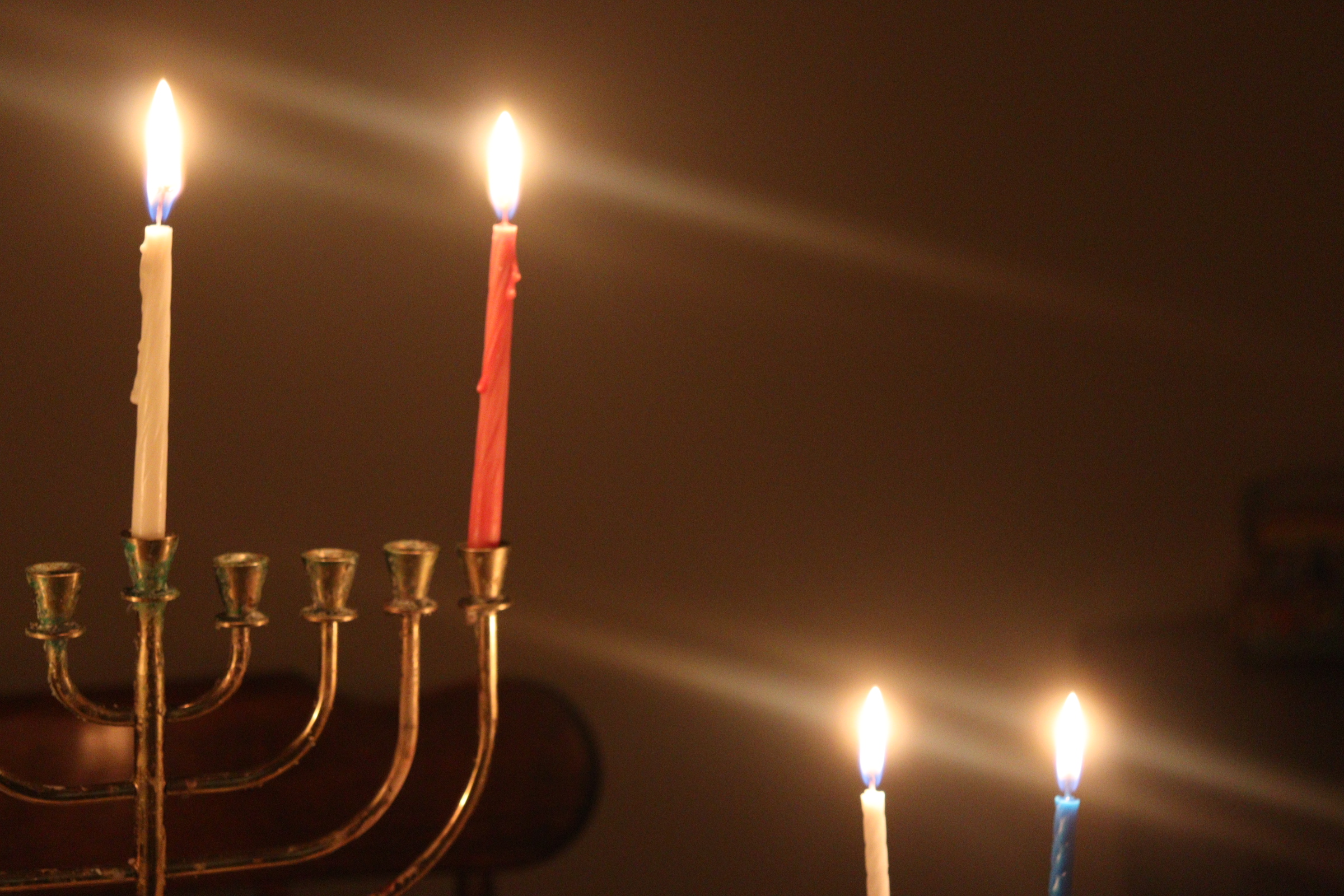Hanukkah is arguably the most well known Jewish holiday there is. I have even been asked if it is the only Jewish holiday when, in fact, it is a very minor one. My non-Jewish friends rarely wish me a happy New Year on Rosh Hashanah–I mean, it’s hard enough to get the day off school or work–but I can guarantee that everyone will be wishing me a “Happy Hanukkah” days after the holiday has already ended. For example, Hanukkah begins early this year on Nov. 28 and ends on Dec. 6.
Every year, always beginning weeks too early, much of the Western World is chock-full of Christmas decorations, holiday marketing campaigns, fairy lights, Santa Claus, and an entirely specific genre of music. More and more you will see a little bit of Judaism sprinkled into this; an electric menorah here, a dreidel pillow there, a small section of blue and white decorations in a store of red and green. Some may consider this progress and inclusivity but in reality, it goes against the meaning of Hanukkah itself.
In the first century BCE, the Greek King Antiochus IV had control over the Kingdom of Judea, AKA Jewish people. He outlawed Judaism and made the religious practice a criminal offense. Jews were forced to worship Greek gods. Antiochus built an altar to Zeus in the Jewish Holy Temple that stood in Jerusalem and sacrificed pigs, an un-kosher animal, on the altar. These horrible offenses to the Jewish people and their religion resulted in a revolt led by Matisyahu the Maccabee (the English version of his name is Mattathias), and later his son Judah. The Maccabees were the Jewish rebels. After two years of warfare, the Maccabees were able to defeat the Greek army.
Legend has it that when the Maccabees returned to their temple, they only had enough oil to light the menorah for one night but it miraculously burned for 8 days.
Hanukkah commemorates a historical event that took place two centuries after the events that commemorate other Jewish holidays, which are taken from the Torah (the Jewish Bible).
The real meaning of Hanukkah is fighting for your religion from people trying to take it away from you. It is about resisting assimilation, which is the process of a minority group shedding their traditional customs, traditions, and beliefs in order to fit into the mainstream majority. Assimilation is often done in order to avoid discrimination and even persecution.
As you can see, gift-giving plays no part in the story of Hanukkah; there were no such things as Hanukkah presents until the 1900s. When American Jews saw the rise of the custom of gift-giving on Christmas, they did not want their own children to feel left out. Plus, what better way to celebrate an 8 day-long holiday than to give a gift every night? So Jewish people assimilated to the Christian tradition of giving gifts every winter. There is a definite irony there, and the perception of Hanukkah for non-Jewish people became sort of a Jewish version of Christmas.
Now blue ‘Hanukkah lights’ are hung and dreidels are sold alongside Christmas ornaments, when it makes no sense to celebrate Hanuukah this way. The true meaning of the holiday has been lost. Hanukkah is a beautiful holiday outside the context of Christmas. Christmas is fun and its own thing; many Jews enjoy taking part in Christmas traditions, including myself. Hanukkah is about finding light in the darkest time of year, remembering the long and beautiful tradition of the Jewish people and how we have prevailed, again and again, over efforts to outlaw our religion, end our traditions, and even murder us.
It is frustrating when Rosh Hashanna, Yom Kippur, and Passover are not recognized or given any attention at all by non-Jews, but Hanukkah is. I don’t want ugly Hanukkah sweaters or plush menorahs; I want to be able to take days off in September to go to synagogue without shame and misunderstanding. I want teachers and organizations to take the Jewish calendar into consideration when scheduling tests, due dates, or events. All of the fanfare around Hanukkah essentially means nothing when there is no real understanding of the holiday or Judaism itself.
So if you are making a note to wish your Jewish friends a Happy Hanukkah this year, please make sure it’s actually during Hanukkah, and remember that we celebrate holidays throughout the entire year–just like everyone else.
Rachel Rosen
Reporter/Social Media Coordinator

